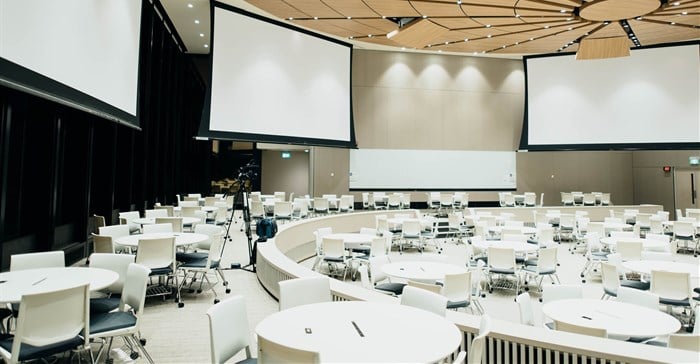
Top stories


ESG & Sustainability#BudgetSpeech2026: SRD grant unchanged, other Sassa social grants see hike
13 hours



More news












ESG & Sustainability
South Africa’s carbon tax should stay: climate scientists explain why










For the 2021/22 sample, 684 professionals were interviewed. This included 360 company professionals, 258 professionals working in PR agencies, and 66 media professionals. Those who were interviewed in each client company must have been involved in the decision-making process to select PR agencies and must have interacted with them in their day-to-day work. The fieldwork was carried out between March and May 2021.
61% of the companies analysed work with PR agencies that solve their needs in an integrated manner and 39% do so with specialised PR agencies. For the near future, contrary to the trend that we find in the case of advertising agencies (creative and media) in Spain, 55% of professionals affirm that they would like to work with integrated agencies that can solve all their communication needs - this compared to a 45% who prefer to do so with specialised agencies in different disciplines.
Digital investment continues its upward trend, an increasingly significant trend in the last two years. With 56% of the PR budget, it now exceeds offline investment for the first time.
When selecting a PR agency to work with, pitching is the most commonly used process (89%), inviting an average of four agencies for each process (the incumbent and three more). The most important aspects for creating a long list of agencies are ethics and transparency (83%), agency professionals (76.6%) and the ability to establish relationships/credibility with the media (73.8 %).
On the other hand, the most used criteria to create a long list are the quality of their work/ cases/credentials (69%), previous personal experience, personal knowledge of the DirCom (52%) and friend’s or colleague’s recommendation (51%).
The average duration of the relationship between companies and their PR agencies is 4.1 years, which represents a decrease of 6 months compared to the previous edition. Large companies generally have longer-lasting relationships (4.5 years) than smaller ones (3.6 years). At the same time, continuous relationships increase (87% vs. 83% in 2019), compared to 13% of once-off projects.
85% of the interviewees remunerate their PR agencies through a fee set at the beginning of the year. The average annual fee increased just over 5% in the last two years. 8% of the accounts (13% in 2019) include a variable part of the remuneration (bonus at the end of the year) that represents around 11% of the annual remuneration.
More than 95% of the clients working with PR agencies declare themselves satisfied with the service they receive from them. Satisfaction levels, increased by 20 percentage points compared to the previous edition.
When professionals are asked about the challenges they think that their companies will face in the coming years, the most mentioned aspects have to do with their structure/image (35%) or data/strategy (34%). Specifically, they talk about achieving greater awareness and relevance; working on sustainability/social Awareness, and differentiating themselves from their competitors.
The aspect of sustainability/social Awareness appears this year for the first time, reaching the second position in importance, highlighting the concern for their surroundings (both people and environment) that has emerged as a result of the pandemic. Everything indicates that, after the crisis, PR agencies will have to make an effort to develop a deeper knowledge of the market and the consumer to communicate more emotional messages, with more empathy and more focus on social values.
In this sense, marketing professionals affirm that "2030 agenda and SDGs " are integrated into the business strategy/DNA of their companies (22%), that they have created a sustainability plan (20%) and are one of their communications core ideas (13%).
On the other hand, when it comes to talking about the challenges encountered by PR agencies, the most mentioned are digital capacity/higher digital investment (24%), reinforcing creativity and innovation (13%), understanding and deep knowledge of the client's business (12%), relationship with the media, influencers & stakeholders (12%) and differentiating themselves from new competitors.
Looking to 2030 PR agencies say, above all, that they should be strong in Digital Capacity (23%) and be more involved/integrated into their clients' businesses.
César Vacchiano, president and CEO of Scopen highlights that “PR agencies, in the coming years, will have to continue to focus their efforts in the digital area. They are already doing so and have taken giant steps, but in our various studies, we are seeing that notable growth in this area, in all communication disciplines, has been accelerated, in part, by the pandemic. Companies mention it as the main challenge for their PR agencies and a clear example of this is the fact that their investment already exceeds the one destined for off-line "
The interviewees believe that the Covid-19 crisis has brought some changes in the relationship with their PR agencies and that new needs are related, above all, with a greater weight of digital/technology (26%) and less face-to-face relationship.
Johanna McDowell, partner for Scopen Africa, said, “Although we have not so far run the PR Scope study in South Africa, we believe that the trends experienced in the Spanish study would be reflected here in this country. In particular, the need for greater digital expertise within the PR agencies.”